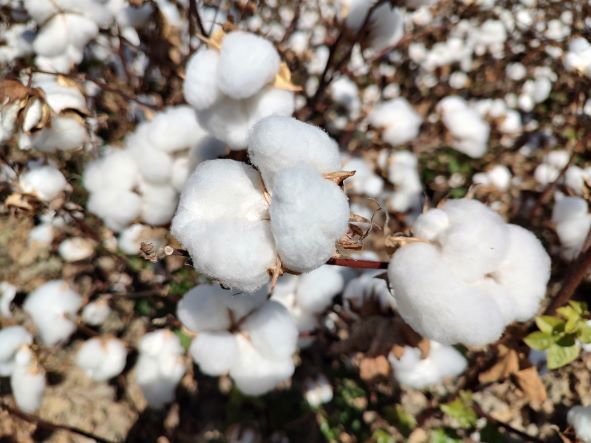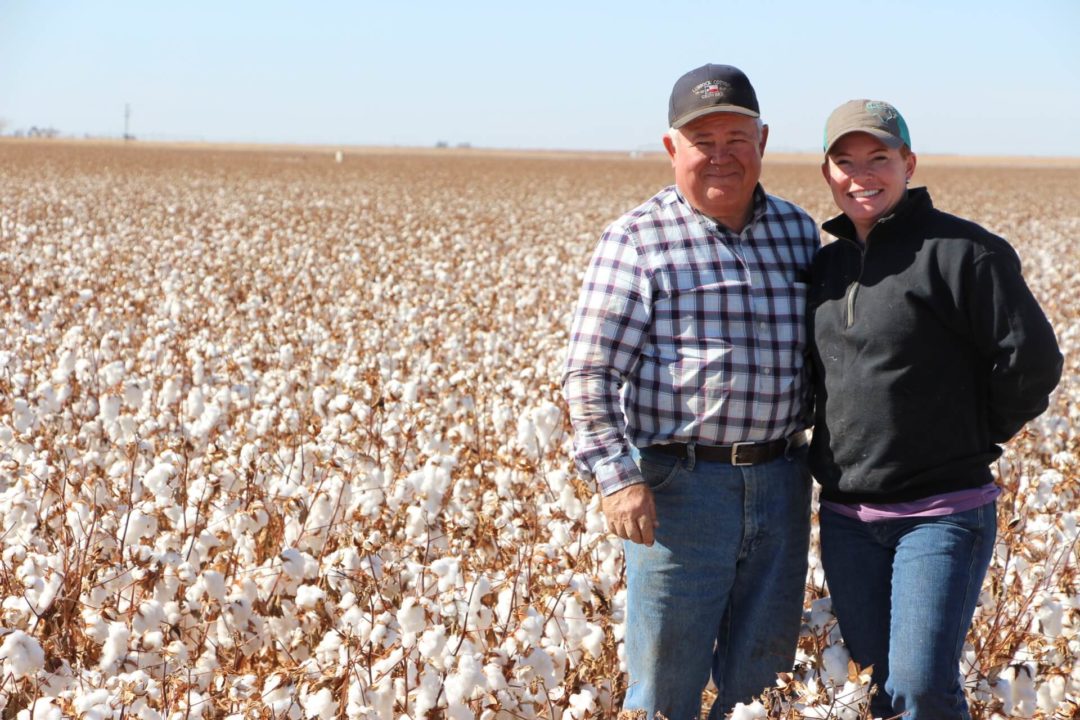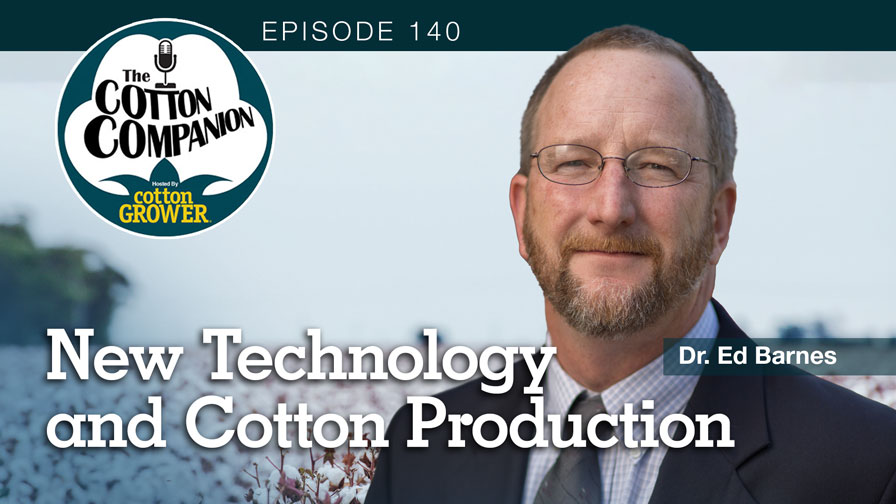ICA Hits the Road
The International Cotton Association is serving notice that it fully intends to live up to the International part of its name, a move that seems to have an entire industry behind it. Never will this be more evident than March 4-6 when ICA, in partnership with Cotton Outlook, hosts its first-ever conference in Singapore. The response from the cotton industry – from merchants to spinners to textile mills – was overwhelming. In mid-February, registration for the full conference and banquet was capped at 400. “We were limited by capacity of the banquet venue,” explains Managing Director Kai Hughes, “but we’re hoping we can accommodate additional registrants who wish to attend the conference only.”
Not a bad problem to have – and one that has ICA officials convinced they are on the right track when it comes to broadening the association into a truly global organization. Admittedly, they’re not quite there yet. But comparison of ICA 2010 with ICA a decade earlier leaves no doubt that today Liverpool is where ICA’s headquarters are located – not the center of its activities.
In March 2009, ICA held its first ever Board of Directors meeting outside of Liverpool as part of the association’s internationalization strategy. Representatives from cotton trading companies in Switzerland, France, Italy, Greece, the UK, Brazil, Egypt, the U.S., Singapore and India took part in Open Forums. The give-and-take discussion on important issues facing the cotton industry proved so valuable additional Open Forums were held that year in China, Tanzania, Brazil and the UK.
Already in 2010, Hughes and ICA President Cliff White have hosted a series of workshops and Open Forums in India and Bangladesh, taking the total number to 240 international delegates who have participated. Additional forums and workshops are planned later in the year for China, the U.S., Turkey, Pakistan and Bangladesh.
The Open Forums are not just aimed at ICA members. As Hughes points out, “In India, we met with directors of the Cotton Association of India and the Bangladesh Textile Mill Association in sessions open to their memberships.”
| ICA Board of Directors | |
| Cliff D. White, President Queensland Cotton Corporation Ltd., Dallas |
Joe Nicosia Allenberg Cotton Co., Memphis |
| Ray F. Butler, 1st Vice-President Liverpool Cotton Services Ltd., Birkenhead |
Nigel R. Scott Climate Change Capital, London |
| Antonio Esteve, 2nd Vice-President Ecom Agroindustrial Group. Sao Paulo |
Peter R. Wakefield Wakefield Inspection Services Ltd., Shanghai |
| David G. Adcroft, Ex-President Louis Dreyfus Commodities Suisse SA, Geneva |
Associate Directors Muhammed Atif Dada |
|
Ordinary Directors Helen S. Anderson |
Ahmed Elbosaty Modern Nile Cotton Co., Cairo |
| Daniel Ballestrin Paul Reinhart AG Winterhu |
Abdul Hai-Sarker Purbani Group, Dacca |
| Jean-Marc Derossis, Treasurer Plexus Cotton Ltd., Birkenhead |
Andrew G. Macdonald Tavex Brasil SA, San Paulo |
| Andrew P. Kelley Cargill Cotton Ltd., Liverpool |
Jagdish A. Parihar Olam International Limited, Singapore |
| Vinay Kotak Kotak & Co., Mumbai |
Takashi Shimazaki Toyoshima & Co., Japan |
| Jordan Lea Eastern Trading Co., Memphis |
Ertugrul Tanriverdi Ensar Tekstil Sanayi ve Ticaret AS |
| Jerry C. Marshall Yiyang Company, Memphis |
Pat-Nie Woo Central Textiles, Hong Kong |
There will be an Open Forum in Singapore but the focal point is the conference, which includes a report on the “Importance of Asia,” a market outlook by Joe Nicosia of Allenberg Cotton and Adrian Foster, head of Financial Markets Research, Asia Pacific, Rabobank, and three sessions addressing the conference theme: “Protecting Your Cotton Business.” (Look for additional coverage on www.cotton247.com and the Spring Issue of Cotton International.)
The formal sessions promise to be enlightening, but for many attending the true value is in networking with delegates from every segment of the industry and almost 30 countries.
“Perception is becoming reality,” Hughes believes. “We want our members to know that we are truly an association without borders and not tied or influenced by any national interest.”
It’s also an association that is listening to what the broadening spectrum of its membership has to say. “It is very important that we listen to all segments – buyers/sellers, merchants, spinners, particularly the spinners – to create an organization that reflects all their views.”
ICA has acknowledged it is also important to form strategic partnerships with other associations. A first step has been taken with the appointment of Jordan Lea of American Cotton Shippers Association to the ICA Board and Andrew Macdonald representing the International Textile Manufacturing Federation as an Associate Director. And the Board is more diverse geographically than in the past (see sidebar), with Associate Directors representing the cotton industries of Africa, Bangladesh, Egypt, Far East, Japan, South East Asia, and Turkey.
What hasn’t changed – and is not likely to change – is ICA’s emphasis on contract sanctity. The last several years have been chaotic for the cotton industry, but membership of the ICA continues to imply “this is a company/person safe to trade with, and one who honors contracts.” Contract sanctity and arbitration remain at the heart of the association’s being.
In fact, access to an arbitrator is perhaps the most important service ICA offers members. And signs say that arbitration activities may be changing too. “It’s a process that constantly demands attention, most noticeably its cost and length of time (usually 14-16 weeks),” Cliff White notes. Under discussion is a procedure for small claims that would be more cost effective and quicker. “Our goal is to have something in place in 2010.”
Singapore will be ICA’s first truly international conference, but it will not be the last. As the global cotton industry changes, ICA is committed to leading, rather than responding to, that change.








